History Game Canada: An History Learning Experience
2007 - 2009
This was the official website for the computer game, History Game Canada
Built on the popular "Civilization" strategy game platform, History Game Canada enhances the history learning experience of 12-18 year olds by putting them in control of early Canadian civilizations-from the French and English to the Huron and Ojibwe. Players are invited to imagine historical events from different perspectives or to fantasize alternative outcomes to consider not only the "what was" of history, but also to envision what might have been.
History Game Canada fosters critical thinking, creative problem-solving, and what it means to make or remake national history.
Content is from the site's 2007 - 2009 archived pages and other outside sources.
The History Canada Game
Welcome to The History Game Canada
The History Game Canada is a game based on Canadian history that lets anyone play the past. Based on the award-winning, best-seller Sid Meier's Civilization III, The History Game Canada is the "What If" game of Canada... and you're the author. Will you replay our history or rewrite it?
The year is 1534...
A strange, pale-faced man named Jacques Cartier arrives on the shores of the Baie de Gaspé accompanied by a crew of 61 men. He raises a cross on the shore emblazoned with the French coat of arms.

To Iroquois chief Donnacona, whose 500 followers live just down the St. Lawrence, Cartier’s intentions couldn’t be clearer. But these settlers bring with them powerful weapons, advanced technologies, and promises of great partnership to come. All they want is to take Donnacona’s two sons back to France with him.
What would you do? Welcome the French as your newest allies? Or defend your homeland with extreme prejudice, and probably your life?
Whats next? You decide.
The History Game Canada lets you relive, replay and even rewrite Canada’s history. Play as the English to expand your empire. Play as the Huron to defend your homeland. Wage wars, make peace and explore new lands...the future of Canadian history is in your hand.
~~~~~
Observations and looking back.
I first played The History Game Canada in middle school. We had a really cool 7th grade history teacher who formed an afterschool history club where we could play it for two hours straight twice a week. I suspect a number of us first developed our love of world building games during these formative years. Remember Myst? For those who have never experienced this series, Myst was a point and click adventure game, in which the player had to solve various puzzles in order to escape the titular island. Or Age of Empires. Frostpunk / Surviving Mars / SimCity 4 / Cities: Skylines / Anno 1800 / Surviving the Aftermath / Megapolis are some of the most realistic building games. And least we forget there is Minecraft and Dungeons & Dragons
As a software developer and lifelong history buff based in Ontario, I have to say The History Game Canada is one of the most inspired educational tools I’ve ever come across. Blending rich historical scenarios with the immersive strategy of Civilization III was already brilliant—but the way the developers translated Canada’s past into something playable, something negotiable, is what really set this apart for me.
I remember hearing through the dev grapevine that the original backend tools they used—yes, good ol’ Microsoft Access—started creating serious headaches as they began layering in more sophisticated historical data and multimedia resources. Anyone who's worked in dev knows the pain: Access is like that trusty old canoe with a cracked hull—might still float, but don’t take it into deep water. The team made the smart (and brave) decision to upgrade from Access, even though it meant reworking large chunks of their architecture. That alone earns my respect.
This game isn’t just a nostalgic gem—it’s proof that with a little creativity and a lot of technical grit, it’s possible to bridge the past and the present in a way that makes both students and devs take notice. I only wish more history and civics curricula across Canada would embrace this kind of gamified learning. Because honestly, nothing makes you appreciate the complexity of our national identity like being the Huron trying to decide whether to negotiate or go to war. Tanya Yee
Game Developers Notes
Working on the The History Game Canada project has been a truly rewarding experience so far. When I was first asked if I would be interested in helping out with the project I really had no idea what all was going to be involved. I had just finished up a pretty intense session with the Conquests expansion, and I really felt that I had everything under control. Nathon Gunn was working directly with Breakawaygames, in an effort to get the concept underway. I was asked at that point if I could spare some time and help out in creating a demo of the concept. Over time, this grew into a much bigger project, and something that I can honestly say I will regard as one of the most rewarding things I have ever had the chance to work on. Learning my own countries history while putting everything into an enjoyable gaming experience has been one of the biggest challenges I have ever faced while creating a mod or scenario. Sure, I have worked on a number of games in the past, but none have been so deeply focused on historical accuracy, while ensuring that the game is still a game. I will try to put together some design diaries over the next few weeks.
Bob is a behind the scenes powerhouse that has infused in this project a passion for game design and Canadian identity.

The History Game Canada FAQ
1. What is Historicanada?
The History Game Canada is a mod pack for Civ3 Conquest v1.22 and Civ3 Complete that is based on the History of Canada. It is intended as a playable fun addition to the Civilization game with a wealth of custom Canadian content. It’s very much a game of ‘What if ...?”; where players can toy with outcomes, now etched in history, but once hanging in the balance. It explores the parameters of history rather than the events, and allows players to live questions like … ”What if the Huron had displaced the 5 Nations Confederacy rather than the other way around?”; or “What if the French had retained Canada, and the English colonies to the East and South had failed to prosper?”
2. Who is The History Game Canada for?
History teachers and high-school students are our primary audience, but we think we’ve designed a game that will appeal to all ages, all Civilization players, and anyone with a passing interest in the history of North America and particularly Canada.
3. What do I need to play?
You’ll need a copy of Civilzation III Conquests (patched to version 1.22) or a copy of Civilization III Complete. Then you just have to download and install the game pack, check out the videos and resources on the website, and get started. Check back often for updates to our reference materials, movies, strategy guides, galleries and our Community Forums.
4. What’s on the website?
If The History Game Canada is the “What if …?” of Canada, then this website is intended to be the “What was …?”. Please take the time to digest our original articles and essays by our history advisors, and spend some time in the Community Forum. Discuss the game, it’s strong points and shortcomings; your experiences playing the game; and your personal view of history.
We look forward to a lively and informative debate and our expert advisors will be weighing in from time to time on topics of interest.

The History Game Canada: Our Past Need Not be a Foreign Country
The past is everywhere. But as historian David Lowenthal points out in making this observation, the past is also a foreign country. [1] The History Game Canada aims to entice people in general, and students in particular, into making a trip to this foreign land.
The past is everywhere, because all around us is evidence of the generations which have preceded us: the built heritage of old structures, the antecedents of current problems and opportunities, the collective memories of peoples. As Lowenthal writes, “relics, histories, memories suffuse human experience. Each particular trace of the past ultimately perishes, but collectively they are immortal. Whether it is celebrated or rejected, attended to or ignored, the past is omnipresent”. [2] For that reason, as George Orwell argues in his famous and terrifying novel, 1984, “he who controls the present controls the past. He who controls the past controls the future”. [3]
Yet we know, too, despite the admonitions of such towering figures as Orwell, or Winston Churchill (“study history, study history, study history. In history lies all the secrets of statecraft”. Churchill told an aspiring graduate student. [4] ), that history has taught in the classroom is not an overwhelming favourite of students. Because of this, and a variety of other factors, historical literacy in Canada is shockingly deficient. [5] Canada is not unique in this; Great Britain and the United States have a similar problem. How to reconcile the delights of history – cost-free excursions to learn how humans have adapted, triumphed or failed – with the reality of citizens’ knowledge of history – low, and not improving?
One response is to lament, as Jack Granatstein does in his bestseller, Who Killed Canadian History?. [6] Another path is to start where people like to spend their lives and to see if history can become part of daily living. Professional historians, of course, are dedicated scholars and as with any great body of knowledge, history needs specialists who replenish the feedstock of knowledge itself. But I believe that there is an equally important role for popularizers of history, authors, like Peter Newman or Pierre Berton, who can write narrative and romance and through their literary skills, make history come alive. History is to citizenship what mathematics is to science – the essential master discipline – and therefore, the diffusion of historical insight, whether through novels like Jane Urquhart’s The Stone Carvers, sweeping narratives like Newman’s history of the Hudson’s Bay Company, the CBC’s “Canada: A People’s History” series, or the sixty-second dramas of the Historica Minutes are as critical a contribution to citizenship as formal school curriculums or advanced historical scholarship.
Believing in the worth of popular history, more than a decade ago, I became interested in the power and potential of gaming. As with so much else, I learned from my children: my son, David, at age six, was more at ease with a computer than I was (or will ever be). One reason for his easy facility with this new technology was that he enjoyed doing it. Computing was fun, especially gaming. The computer box could bring together multi-media wraparounds that let him decide on the course of the action, rather than passively receiving someone else’s plot on a TV screen. Multimedia interactivity seemed to me then, and even more powerfully today, as the wave of the future.
As the then-Executive Director of the Historica Foundation, when I wanted to make exciting television, I reached out to Patrick Watson, the best in the business. When I became interested in interactive gaming, I reached out to Nathon Gunn of Bitcasters, also the best in the business. We began to dream of how history could be advanced by gaming. Each of us had a bottom line: I wanted scenarios to be realistic enough so that players would experience how real-life choices affected real-life chances. Nathon Gunn’s bottom line was that gaming must be lively, engaging, and fun if it was to attract a sophisticated younger audience. The mission defined itself – could Bitcasters create a Canadian History game that was fun to play?
The results of this decade-long exploration are now ready to be played. Bitcasters secured the rights to the Civilization game engine, one of the most successful computer games ever invented. Civilization involves a player making decisions about resource allocation, strategy, and diplomatic tactics. The resources differ depending on whether one chooses to be the Romans, or the ancient Chinese. With this proven game technology in place, Bitcasters pulled together a team of game developers, media experts, teachers, and historians to create Canadian scenarios that would fit within the Civilization model. Then, Bitcasters attracted partners, like Historica (I had resigned from Historica by this time, but retained my involvement by being one of the historical advisors to the Bitcasters team) and Canada’s National History Society, to add their own special contributions to the project. Lastly, Bitcasters was able to attract funding from Telefilm Canada to create a prototype of the game. After beta-testing and substantial reworking, the Phase One scenario, 1535-1763 of The History Game Canada, “The New World” is now about to enter the Canadian market.
While completing Scenario One of the The History Game Canada project, Bitcasters has well-advanced in creating Scenario Two, 1763-1867: “The Nation Builders”, and Scenario Three 1867-1890: “Opening the West”. Plans are underway to create additional phases of the game, which would bring it up to the year 2000. The History Game Canada is already one of the most innovative new additions to Canada’s education and cultural infrastructure and additional content is currently in production!
For too many Canadians, our past is a foreign country. The commitment and expertise of the Bitcasters team has created a Canadian experience powered by the famous Civilization platform, which opens this foreign land to all those willing to use their wits to guide the destiny of the Five Nation Iroquois Confederacy, the first French settlers, the great English merchants, or the large Huron nation. The game is certainly testing, but it is also great fun. Through The History Game Canada, players are invited to time-travel to an era when North America was inhabited by a complex network of aboriginal nations, who one day looked east and saw some strange sailing ships approaching their shores.
Thomas S. Axworthy is Chair of the Centre for the Study of Democracy at Queen’s University and is a former Director of the Historica Foundation. He is a historical consultant to Bitcasters.
[1] David Lowenthal, The Past is a Foreign Country, Cambridge, UK: Cambridge University Press, 1985, xv.
[2] Ibid.
[3] Quoted in Erna Paris’ Long Shadows: Truth, Lies and History, (Toronto, Vintage Canada, 2001), p. I. Paris’ work is a powerful study of the way collective memory develops, and what happens to people who are excluded from the dominant narrative. Her theme reinforces the point of Lowenthal that history sometimes is silent but always omnipresent. She studies how countries like Germany, France, and Japan have responded (or not responded) to the mega-traumas, like the Holocaust or Japan’s aggression to China. She finds that modern day tragedies and massacres in Bosnia have much to do with how societies interpret their history.
[4] Churchill’s advice was to James C. Humes, an American graduate student studying in England. Humes took the great man’s advice and became a speech-writer for three American Presidents. See James C. Humes, Churchill: Speaker of the Century, New York, Stein and Day Publishers, 1980, p. vii.
[5] J.L. Granatstein, Who Killed Canadian History?, Toronto: Harper Collins Publishers, 1998.
[6] See the findings of Granatstein above. Further material can be found on the websites of the Historica Foundation (histori.ca/) and the Dominion Institute

Global Competition Selects 19 Innovative Digital Media and Learning Projects to Share $2 Million
Nineteen projects from around the world were awarded funding today to explore digital media’s ability to help people learn. In a $2 million competition funded by the John D. and Catherine T. MacArthur Foundation and administered by HASTAC.
The Competition is part of MacArthur’s $50 million digital media and learning initiative designed to help determine how digital technologies are changing the way young people learn, play, socialize and participate in civic life.
Skywoman, First Woman and the Three Sisters
After Skywoman prepared the soil around the turtle's back, she gave birth to her child, The first child born on this earth was a female, First Woman. As First Woman grew to adolescence, her mother had a dream. In it, she was told that there would be a young man who would come from the west, and have her daughter as his wife.
As time went on, First Woman had a dream, and in this dream she was approached by a handsome young man. He was the spirit of West Wind. In that dream they fell in love. For three nights West Wind came to the young woman. Each night their bond became stronger and they agreed to be together for all time.
Soon after that, First Woman had a dream. She saw her daughter sleeping and there on her belly were two arrows crossed over each other. She knew that this meant she would give birth to twins. When she awoke, she saw a mark on her daughter's belly that looked like the two arrows from her dream.
As time went on, the young woman's pregnancy developed and she had a very hard time with these two boys, even in the womb. Teharonhiawako, the holder of the skies, was born first. Sawiskera, the mischievious one, was so upset that his brother was going to be born first, that as his brother was being born, he forced his way out through his mother's side, killing the young woman.
The grandmother, Sky Woman, never seeing human death before, wasn't sure what to do with her daughter. She took the soil she had spread about the turtle and covered her daughter up with it. From First Woman's grave grew three sacred plants—corn, beans, and squash. "These plants", she told her grandsons " would provide food for them and for all the human beings."
Another version of the story goes like this …
Corn, Beans, and Squash. were three sisters who very close. They did not live in the community with everyone else, they lived far away in the bush.
The oldest sister was Corn. She was very tall with long, yellow hair. As the oldest, she always took care of her sisters and was very protective over them. The second sister was Beans. She was very shy and always hung on to her oldest sister. Her beautiful hair was short and curly and worn tight around her head. The third sister was short and stout. She always wore a colorful dress of orange and loved staying close to her sisters. Corn and Beans always took great care of the youngest sister.
One day a a Mohawk boy came to the lodge of the Three Sisters. He told them that he was lost and could not find his way home. Corn said that she would help this young boy, but Beans and Squash were very upset and begged her to stay. Corn went off with the boy and was gone for so long that the two sisters began to get worried.
"I must go and search for our sister" said Beans.
"No sister" said Squash. "Please do not leave me!".
"I must go, but I will return with her and we'll be together again". Beans went off and she too was gone for a long time.
"My sisters are gone and I do not like living alone" Said Squash. "I will go and look for them." She too went off now.
After a while she came up to a clearing. She could hear giggles that she recognized, but she searched and searched and couldn't see anyone. Finally she went to where the sounds were coming from. She looked down to the ground were the laughter was coming from and there she saw 2 green sprouts coming from the earth.
There she could hear her sisters "Our sister, come and join us" they said.
"But how can I ?" said Squash. With that, her legs began to sink into the earth and she found herself once more re-united with her sisters.
From that day on, the 3 sisters have been back together again, happily looking after eachother. Corn growing strong and straight, Beans winding herself around her eldest sister and Squash in the safety of their shadow.
Since then the Human Beings have always planted Corn, Beans and Squash together and they became a staple food of Haudenosaunee communities.
Rosa John is passionate about using performance as a teaching tool for Native culture and history. She is excited about the opportunity to reach a game playing audiene with her traditional stories.

Our Panel of Expert Advisors
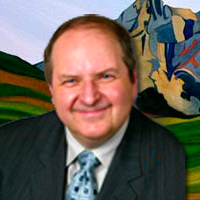 |
Thomas Axworthy/imagesTom is the Chair of the Centre for the Study of Democracy at Queens University, the former Executive Director of The Historica Foundation, and was Principal Secretary to Prime Minister Pierre Trudeau. |
 |
Nathon Gunn
Nathon as the CEO of Bitcasters, has created web-games enjoyed by over 10 million users and has helped to found the new media division and strategies of five major media companies. He is an award-winning game, music video, commercial and film producer. |
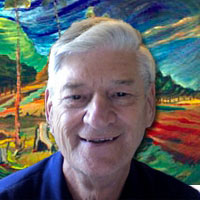 |
Ron Robert/imagesRon is the Program Director for the Canadian Aboriginal Festival held annually at the Rogers Centre. He is also founder and director of the Canadian Aboriginal Music Awards. He works tirelessly to promote contemporary and traditional aboriginal culture in Canada and around the world. |
 |
Stephane Levesque/imagesStephane is an Assistant Professor of History and Citizenship Education at the University of Western Ontario. He is a board member of Historica and chair of its Professional Development and Education committee. He is currently developing his own game project, 'The Virtual Historian' for teaching and learning Canadian history. |
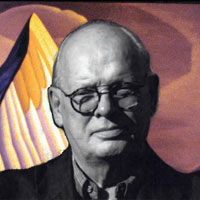 |
Richard Nielsen/imagesRichard is President of Norflicks Films. In his long career he has received many awards as a writer, director and producer of film and television. Dick is very well known for his productions around Canadian military history. |
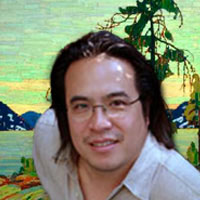 |
Donald Quan/imagesDonald is the music director for the Canadian Aboriginal Music Awards and has been nominated for several Gemini awards for his soundtrack work in film and television. |
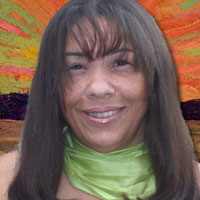 |
Rosa JohnRosa is a professional storyteller and a director of Kehewin Dance Company. She is a passionate educator of traditional aboriginal stories and culture. |
Contributing Authors and Artists
Patricia O'Callaghan - Soundtrack Composer
Patricia is a Canadian interpreter of classical, cabaret and contemporary songs. She and Andy Morris arranged and recorded a version of a traditional Acadian folk melody for the game soundtrack.
Brian Macmillan - Soundtrack Composer
Brian is a Toronto based folk guitarist and singer. He has arranged and recorded a baroque classical guitar piece for the game soundtrack
Francis Back - Historical Illustrator
Francis is responsible for very many of the beautiful 'artists recreations' you will see at the Museum of Civilization and many other museums in Canada and around the world. He assisted us with historical consulting, research and art development in the game.
Bob Taylor - Level Designer and Artist
Bob is a behind the scenes powerhouse that has infused in this project a passion for game design and Canadian identity.
More about our partners
For a deeper understanding of Canadian history explore the many programs of our partners:
Canada's National History Society http://www.historysociety.ca/ - which includes The Beaver magazine, Kayak Magazine and the Governor General's Teaching Awards.
The Historica Foundation http://www.histori.ca/ - which includes the bountiful Canadian Encyclopedia, History Resources, Historica Minutes and much more.

More Background On HistoriCanada.com
HistoriCanada.com occupies a distinctive place in the early history of educational gaming in Canada. Emerging in the mid-2000s, the website served as the official digital home of The History Game Canada, an ambitious learning project that blended historical scholarship, classroom pedagogy, and commercial game technology. At a time when digital humanities and “serious games” were still nascent concepts, HistoriCanada.com functioned as a bridge between educators, historians, students, and game developers who believed that history could be explored interactively rather than memorized passively.
Rather than presenting Canadian history as a fixed narrative, the project invited players to interrogate contingency, causality, and perspective. The site framed history as something to be experienced, negotiated, and even rewritten through structured gameplay. In doing so, HistoriCanada.com aligned itself with a broader movement in Canadian public history that sought to improve historical literacy, civic engagement, and critical thinking among young audiences.
Ownership and Organizational Background
HistoriCanada.com was developed as part of the History Game Canada initiative, which was led by Bitcasters, a Canadian digital media and interactive design company active during the early 2000s. Bitcasters specialized in interactive storytelling, educational media, and web-based experiences, and the project represented one of its most historically ambitious undertakings.
The initiative brought together a coalition of partners rather than operating as a single-owner commercial venture. These included historians, educators, Indigenous cultural advisors, media producers, and cultural institutions associated with Canadian heritage. Funding and institutional support were drawn from Canadian cultural agencies and educational organizations, with prototype development receiving backing from national funding bodies dedicated to digital media and learning innovation.
Rather than being owned by a single publisher or university, HistoriCanada.com functioned as a collaborative cultural project, reflecting a public-interest model common to Canadian educational media at the time.
Location and Proximity to Institutions
The project was based primarily in Canada, with strong ties to Ontario and Quebec, where many of the contributing historians, advisors, and developers were located. Its institutional proximity to organizations such as the Historica Foundation, Canada’s National History Society, and academic centers focused on citizenship education positioned the site within a dense ecosystem of Canadian historical scholarship and public outreach.
This proximity mattered. The project drew intellectual energy from debates around Canadian identity, bilingualism, Indigenous history, colonial legacy, and national memory that were especially prominent in Canadian academic and cultural circles during the late 1990s and early 2000s.
Historical Context and Development Timeline
HistoriCanada.com launched during a period when educational technology was undergoing rapid change. Broadband access was expanding, schools were integrating computers into classrooms, and strategy games such as Civilization III had demonstrated that complex historical systems could be translated into engaging gameplay.
The History Game Canada was built as a mod for Civilization III: Conquests, leveraging a proven commercial engine rather than attempting to build a new platform from scratch. This decision allowed developers to focus on historical content, scenario design, and educational framing instead of core mechanics.
The website itself was active primarily between 2007 and 2009, hosting articles, essays, developer diaries, historical resources, and community discussions. While the game’s ambitions extended well beyond that window, the site captures a specific moment in Canadian digital culture when interactive history was being seriously explored as a national educational tool.
Purpose and Goals of the Website
HistoriCanada.com had several clearly articulated goals:
-
To improve historical literacy among Canadian youth
-
To demonstrate that history involves choices, trade-offs, and uncertainty
-
To encourage critical thinking rather than rote memorization
-
To provide teachers with alternative tools for classroom engagement
-
To foreground Indigenous perspectives alongside European colonial narratives
The site positioned itself as the intellectual counterpart to the game. While the game asked “What if?”, the website answered “What was?”, offering essays, historical background, and expert commentary that grounded gameplay in scholarship.
Educational Philosophy and Pedagogical Approach
At the heart of HistoriCanada.com was a progressive philosophy of history education. The project rejected the idea that history is a single authoritative story and instead emphasized multiplicity of perspectives. Players could assume the role of Indigenous nations such as the Huron or Haudenosaunee, or European powers such as the French and English, each with different constraints, advantages, and worldviews.
By embedding historical dilemmas within gameplay mechanics—resource allocation, diplomacy, conflict, alliance-building—the project encouraged students to grapple with ethical and strategic questions faced by historical actors. This experiential approach aligned closely with constructivist learning theories that emphasize active engagement and meaning-making.
Indigenous Representation and Cultural Consultation
One of the most significant aspects of HistoriCanada.com was its explicit effort to incorporate Indigenous histories, voices, and cultural frameworks. Indigenous advisors, artists, and storytellers contributed to the project, ensuring that content was not merely symbolic but grounded in living traditions and community knowledge.
The site included traditional narratives, cultural explanations, and historical context related to Indigenous nations featured in the game. These elements reinforced the idea that Indigenous peoples were not peripheral to Canadian history but central actors whose decisions shaped the continent long before European contact.
Content Structure and Website Features
HistoriCanada.com offered a variety of content types designed to support both gameplay and learning:
-
Historical essays written or reviewed by academic advisors
-
Developer diaries explaining design choices and challenges
-
Cultural and mythological narratives integrated into game scenarios
-
Educational explanations linking gameplay mechanics to real historical dynamics
-
Community forums that encouraged discussion and debate
This combination made the site both an educational resource and a reflective space where users could think critically about their experiences in the game.
Popularity and Audience Reach
While HistoriCanada.com was never a mass-market entertainment site, it reached a meaningful audience within Canadian schools, history clubs, and educational networks. Teachers experimenting with game-based learning used the site as a reference point, while students encountered it through classroom assignments or extracurricular activities.
The project’s primary audience included:
-
Secondary school students (ages 12–18)
-
History teachers and curriculum developers
-
Educational technologists
-
Game designers interested in serious games
-
Canadian history enthusiasts
Its influence extended beyond raw traffic numbers, shaping conversations about how history could be taught in digital environments.
Press and Media Coverage
The History Game Canada project received attention within educational media, digital learning forums, and cultural funding circles. It was frequently cited as an example of innovative educational media that blended entertainment and scholarship.
International recognition also came through inclusion in global digital learning competitions that highlighted experimental uses of technology in education. Such recognition placed HistoriCanada.com within a broader international conversation about how games could foster civic engagement and historical understanding.
Awards and Recognition
While the website itself did not function as an awards-driven platform, the project benefited from institutional recognition and competitive funding associated with innovation in digital media and learning. Selection in internationally funded learning initiatives underscored the project’s perceived value and originality.
These accolades validated the project’s approach and demonstrated that Canadian educational media could compete on a global stage.
Reviews and Critical Reception
Feedback from educators and students was generally positive, particularly regarding the game’s ability to spark curiosity and discussion. Teachers reported that students who were disengaged by traditional textbooks often became deeply invested when history was presented as an interactive system.
Critiques tended to focus on technical barriers, such as the need for specific game versions or the complexity of installation, rather than on the project’s educational goals. These limitations reflected the technological constraints of the era rather than conceptual shortcomings.
Cultural and Social Significance
HistoriCanada.com represents an early and influential attempt to reimagine national history through interactive media. It sits at the intersection of public history, education reform, Indigenous representation, and digital culture.
The project challenged the idea that national identity is static, encouraging players to see history as shaped by decisions, power structures, and competing interests. In doing so, it contributed to a more nuanced understanding of Canadian identity—one that acknowledges conflict, contingency, and diversity.
Legacy and Archival Importance
Although HistoriCanada.com is no longer actively maintained, its archived pages remain valuable artifacts of early digital humanities work. The site documents a moment when educators and developers were willing to take creative risks to improve historical understanding.
For researchers studying educational games, Canadian cultural policy, or the evolution of digital learning, HistoriCanada.com offers insight into how ambitious national projects were conceived and executed in the early 21st century.
~~~
HistoriCanada.com was far more than a promotional website for a game. It was a thoughtful, interdisciplinary platform that sought to transform how Canadians—especially young Canadians—engaged with their past. By combining rigorous historical scholarship, inclusive cultural consultation, and proven game mechanics, the project demonstrated that history could be immersive, challenging, and deeply relevant.
Its legacy endures as a case study in how digital media can serve public education, cultural memory, and civic literacy. Even years after its active period, HistoriCanada.com stands as a reminder that the past does not have to be a foreign country—it can be a landscape we actively explore.
